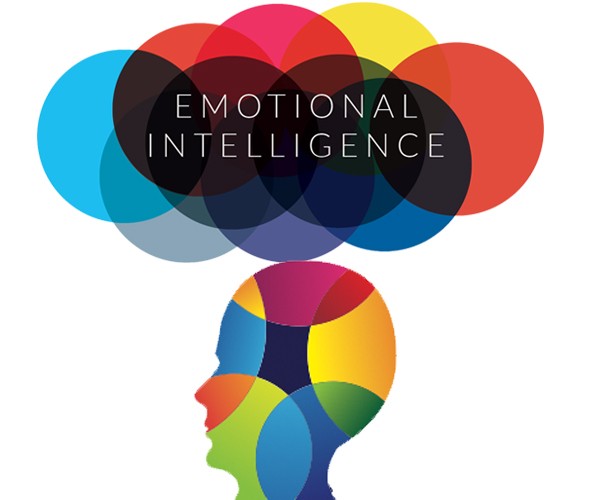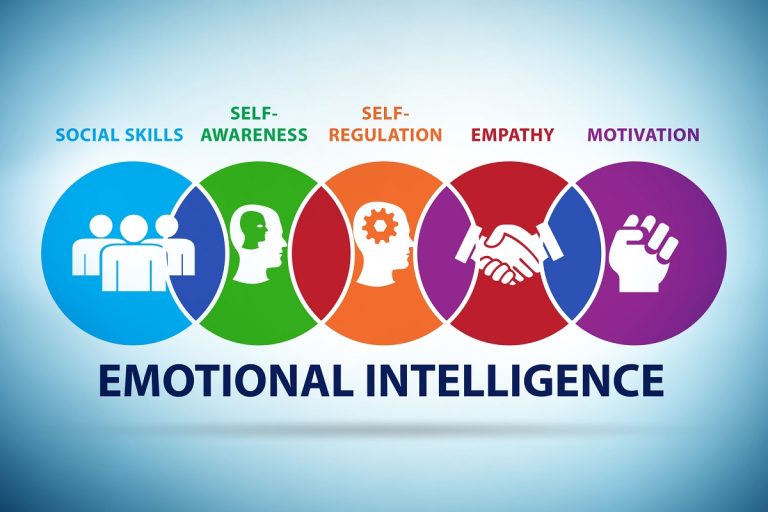Effective leadership isn’t just about making decisions and giving orders; it’s about understanding and connecting with the people you lead. In today’s fast-paced and ever-changing business world, emotional intelligence (EI) has become a cornerstone of successful leadership. Leaders with high emotional intelligence have the ability to connect, empathise, and inspire their teams. In this blog, we will explore the significance of emotional intelligence for leaders and provide practical insights on how to develop and enhance this critical skill.
Understanding Emotional Intelligence
Emotional intelligence, often referred to as EI or EQ (emotional quotient), is the capacity to recognise, understand, manage, and influence our emotions and the emotions of others. It is a multi-faceted skill that encompasses self-awareness, self-regulation, empathy, social skills, and motivation. For leaders, honing these skills is invaluable as it can lead to improved team dynamics, decision-making, and overall organisational success.

Developing Emotional Intelligence for Leaders
Self-awareness:
- Recognise and understand your own emotions. Regularly self-reflect to identify your strengths and weaknesses.
- Solicit feedback from others, and be open to constructive criticism.
- Keep a journal to track your emotions and reactions in various situations.
Self-regulation:
- Learn to manage your emotions effectively, especially in high-pressure situations.
- Practice stress management techniques such as mindfulness, meditation, or exercise.
- Cultivate a growth mindset, which helps you adapt and stay resilient in the face of challenges.
Empathy:
- Make a conscious effort to understand the perspectives and feelings of others.
- Practice active listening when your team members express themselves.
- Ask open-ended questions to encourage dialogue and uncover their thoughts and emotions.
Social skills:
- Strengthen your communication and relationship-building skills.
- Foster an inclusive and supportive work environment that encourages collaboration and open communication.
- Set clear expectations and provide constructive feedback to team members.
Motivation:
- Connect your team’s goals and objectives to a higher purpose or vision.
- Lead by example by staying motivated and enthusiastic about your work.
- Celebrate successes and acknowledge the efforts of your team to boost morale and motivation.
Join the NoLimits Business Community
Are you a business owner looking to take your business to the next level? Join our innovative community of like-minded professionals and gain access to a wealth of valuable resources, including a community portal to chat with other business owners, ebooks, business development software, and growth events that will transform the way you do business. Best of all, these resources are completely free and will be available to you forever.
But the benefits of joining our NoLimits business community don’t stop there. By becoming part of our community, you’ll have the opportunity to connect with other business owners, share insights and ideas, and build valuable relationships that will help your business thrive. Don’t miss out on this amazing opportunity to supercharge your business and join us today!
Benefits of Emotional Intelligence for Leaders
- Improved communication: Leaders with high emotional intelligence are better at conveying their ideas, understanding the needs of their team, and resolving conflicts through effective communication.
- Stronger relationships: Leaders who show empathy and connect with their team members on an emotional level build trust and loyalty, leading to more productive and engaged teams.
- Enhanced decision-making: Emotional intelligence helps leaders make well-informed decisions by considering the emotional implications and long-term impact of their choices.
- Conflict resolution: Leaders with strong EI can mediate and resolve conflicts with sensitivity and a focus on maintaining positive relationships within the team.
- Adaptability: Leaders with emotional intelligence are more adaptable and resilient, allowing them to navigate change and adversity more effectively.
Conclusion
Developing emotional intelligence is an ongoing journey for leaders, but it is well worth the investment of time and effort. Leaders who cultivate emotional intelligence not only create healthier work environments but also enable their teams to reach their full potential. In a world where the most successful leaders inspire, connect, and empower, emotional intelligence stands as a powerful tool for achieving leadership excellence. Embrace the path to emotional intelligence and watch your leadership abilities flourish.
David Rivers
Join the NoLimits Business Community
Are you a business owner looking to take your business to the next level? Join our innovative community of like-minded professionals and gain access to a wealth of valuable resources, including a community portal to chat with other business owners, ebooks, business development software, and growth events that will transform the way you do business. Best of all, these resources are completely free and will be available to you forever.
But the benefits of joining our NoLimits business community don’t stop there. By becoming part of our community, you’ll have the opportunity to connect with other business owners, share insights and ideas, and build valuable relationships that will help your business thrive. Don’t miss out on this amazing opportunity to supercharge your business and join us today!

